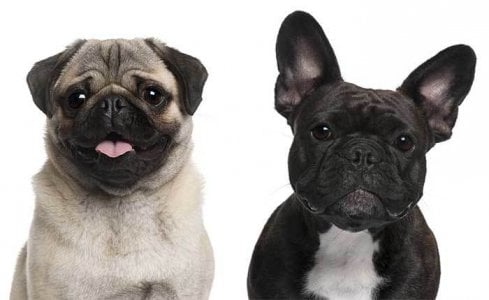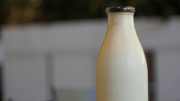SDC Rewards Member
Upgrade yours now
The cruelty behind breed manipulation: Boycotting the selective breeding of French Bulldogs and Pugs in Australia
For centuries, humans have steadily progressed to a level of being able to selectively alter plants and animals to bring about more desirable characteristics. We’ve altered crops to produce bigger and better yields, farm animals that will provide top-notch quality meat or wool, and sadly, dogs to mold them into a certain aesthetic considered to be more appealing. Where do we draw the line?
Several animal welfare organizations have called for the ban of selective breeding for superficial reasons of some of Australia’s most loved dogs, including French Bulldogs.
The Australian Veterinary Association (AVA) also supports the cause and vouches for the discontinuation of breeding dogs with 'a muzzle length less than a third of its skull length' because of the horrendous suffering this causes on the animal.
Dogs that have these features are highly admired and sought-after, but the impacts are so atrocious and painful that they are now regarded as 'brachycephalic breeds' taken from the Brachycephalic Obstructive Airway Syndrome (BOAS), which the dogs often end up getting along with other health problems.
“BOAS affects the animal’s ability to breathe, exercise, thermoregulate, sleep, play and undertake other normal behaviours.” the AVA said.
In some cases of selective breeding such as that for ‘corkscrew tails’, the effects become so severe that they have been associated with spinal and neurological damage.
The AVA called for a partial ban on Cavalier King Charles Spaniels, Pugs, Boston Terriers, French Bulldogs and British Bulldogs— all breeds listed among Australia’s top 20 most popular dog breeds.
Four Claws, an animal charity, claimed that about 97% of the Cavalier King Charles Spaniels suffer a gruesome amount of symptoms because their features moulded by selective breeding compress their brains. This produces terrible headaches, vision issues, dizziness, and even hearing loss.
Many of the formerly mentioned breeds look nothing like what they used to from only a few decades ago. The RSPCA said that in order to undo this damage, some affected dog types must be ‘outcrossed’ with other breeds.
“This may be necessary to effectively moderate exaggerated features and restore breeds to a physical type that is healthy.” an RSPCA spokesperson told Daily Mail Australia.
The breeding of British Bulldogs and Cavalier King Charles Spaniels was recently banned in Norway thanks to the charity organisation, Animal Protection Norway, that took the case to court.
“This is first and foremost a victory for our dogs…” Åshild Roaldset, the charity head, exclaimed. “It is a historic verdict that attracts international attention. The man-made health problems of the bulldog have been known since the early 20th century. But dogs have the right to be bred healthy.”
The organisation which supports dog breeding and showing, Dogs Australia, puts the blame on 'illegal' breeders who carelessly breed numerous Pugs, French Bulldogs and Poodles online. This makes it all the more difficult and nearly impossible for regulators to hold them accountable.
“They ignore government requirements to obtain a Breeders Identification Number because they know that they are untraceable, that means that there is no pressure on them to observe health and welfare issues regarding their breeding stock.” they said.
The RSPCA urges dog showing groups to hear out the calls to prohibit the display of dogs whose health has been jeopardised by selective breeding.
'[We are] calling for urgent changes to judging criteria in the show ring, such as rewarding for health as the priority (rather than rewarding for physical appearance) and new rules to ensure dogs with exaggerated features cannot be shown,' the RSPCA said.
The AVA, on the other hand, is fighting for changes to the law that will ultimately force dog breeders to disclose the health issues of the dogs before selling them to their owners. This is to ensure that the owners are aware and will be able to account for their pet’s expenses. The long-term health issues of the dogs can leave their owners with expenses that may reach up to $2,500 to cover surgery costs and daily medications.
“In Western Australia, I would expect BOAS airway surgery to be anywhere between $1,500 to 2,500 and diaphragm repair for sliding hiatal hernia to be $1,500 upwards…” explained Dr Neck. “A lot of this will depend on follow-up care, some animals will need 24 plus hours intensive monitoring afterwards, and it must be noted this is not benign surgery.”
“We recommend that dog owners taking on brachycephalic breeds must be fully informed of the health and welfare implications of common disorders of that breed, including the potential costs associated with managing these disorders.” the AVA said.
Want to learn more about the terrible impacts of selective breeding? Watch the video below!
Credit: The Feed SBS







